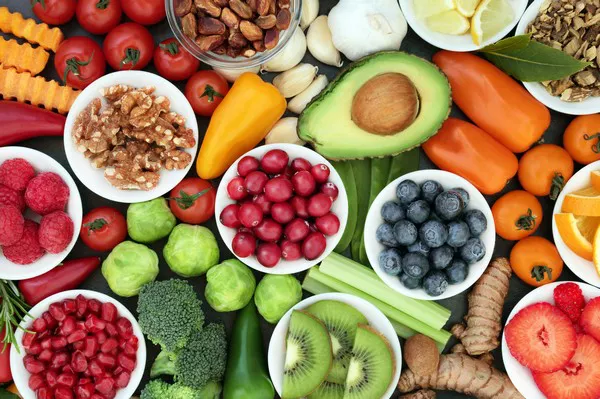Eating a balanced diet that includes an adequate amount of protein is essential for maintaining optimal health. While meat and dairy products are commonly recognized as major sources of protein, it is often overlooked that several vegetables also provide a significant protein content. In this article, we will delve into the world of protein-rich vegetables, highlighting their nutritional values and discussing how they can be incorporated into a well-rounded diet.
1. Broccoli
Broccoli, a cruciferous vegetable, stands out for its exceptional nutritional profile. It contains approximately 2.8 grams of protein per 100 grams, making it one of the top protein-rich vegetables. Additionally, broccoli is packed with vitamins C, K, and folate, as well as dietary fiber. This versatile vegetable can be enjoyed steamed, roasted, stir-fried, or added to salads and soups.
2. Spinach
Spinach, known for its vibrant green leaves, is another vegetable bursting with protein. With around 2.9 grams of protein per 100 grams, spinach is a valuable addition to any protein-focused meal plan. Not only is it rich in protein, but spinach is also an excellent source of iron, vitamins A and K, and antioxidants. Enjoy spinach raw in salads, sautéed as a side dish, or blended into smoothies for a nutrient-packed boost.
3. Peas
Peas, both green and yellow varieties, are not only sweet and delicious but also surprisingly high in protein. With approximately 5.4 grams of protein per 100 grams, peas offer a substantial plant-based protein option. They are also rich in dietary fiber, vitamins A and C, and essential minerals like potassium. Peas can be enjoyed fresh, steamed, or added to stews, soups, and stir-fries.
4. Lentils
Lentils are legumes that come in various colors, including green, brown, and red. They are a powerhouse of plant-based protein, with around 9 grams per 100 grams. In addition to their high protein content, lentils are an excellent source of dietary fiber, folate, iron, and potassium. These versatile legumes can be used in soups, stews, salads, and even as a meat substitute in dishes like lentil burgers or tacos.
5. Chickpeas
Chickpeas, also known as garbanzo beans, are a staple in many cuisines worldwide. With roughly 19 grams of protein per 100 grams, chickpeas are one of the most protein-rich vegetables available. They are also loaded with dietary fiber, vitamins, and minerals such as manganese and folate. Enjoy chickpeas in hummus, salads, curries, or roasted as a crunchy snack.
Conclusion
While meat and animal products typically dominate conversations about protein sources, it is crucial to recognize that several vegetables offer substantial amounts of protein. Incorporating protein-rich vegetables into your diet provides not only the essential amino acids needed for proper bodily function but also an array of vitamins, minerals, and antioxidants. Whether you follow a vegetarian or vegan lifestyle or simply want to diversify your protein sources, vegetables such as broccoli, spinach, peas, lentils, and chickpeas offer viable options that can be incorporated into various recipes and meals. Embracing these plant-based proteins promotes dietary diversity, sustainability, and overall well-being. So, start exploring the world of protein-rich vegetables and reap the numerous health benefits they have to offer.


